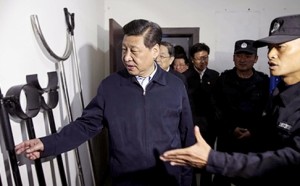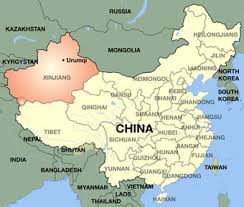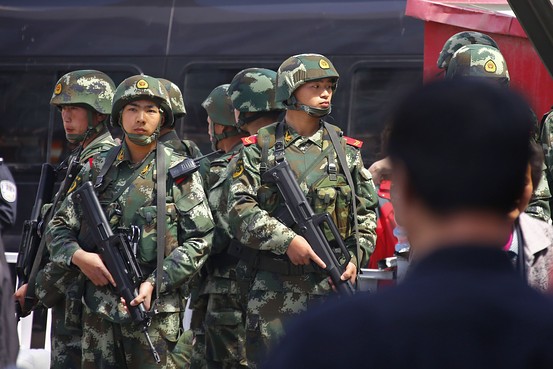Xi Jinping came to power as the president of the People’s Republic of China (PRC) just over one year ago. Initially, there was great expectation and renewed hope for ethnic minorities amidst promises of reforms made by Xi in 2013. Because Xi’s father, Xi Zhongxun, had been a proponent for minority rights, many thought that the junior Xi might usher in new reforms to ease political, cultural, and religious repression. This has not proven true in Tibet, nor has it proven true in Xinjiang in north western China where the Uyghur population faces a similar sort of oppression.
Like Tibet, Xinjiang has been under communist China rule since 1949, and its people have since been faced with cultural and religious repression. Amnesty International has accused the PRC of systematically eroding the identity of the Turkic speaking, mostly Sunni Muslim Uyghurs through “an aggressive campaign that has led to the arrest and arbitrary detention of thousands of Uyghurs on charges of ‘terrorism, separatism and religious extremism’ for peacefully exercising their human rights.”
In accordance with its blatant disregard for Uyghur culture, the PRC is actively diluting its demographic significance. By flooding the region with Han [Chinese] migrants and making the Uyghur people a minority in their own land, Xinjiang is facing cultural denigration and forced Sinoisation. This happens also in Tibet where an ancient culture is quickly being diluted by China’s new culture of consumerism. Additionally, many within both Xinjiang and Tibet have been evicted and involuntarily relocated in order to make way for “development” projects. Although “progress” has undoubtedly been made, very infrequently does development actually benefit the minority community.
The New York-based Human Rights Watch has said, “In Xinjiang, pervasive ethnic discrimination and severe religious repression continued to fuel rising tensions.” Unlike his father, who objected to the undue force used at Tiananmen Square in 1989, Xi Jinping is more than willing to utilise violence to crush dissent. Since Xi became president, scores have been killed in raids and riots within Xinjiang, and security forces are ever-present. But rather than quelling the tension, the decision to intimidate the Uyghur people has led to increased dissent and violence over the past year.
On April 30, years of repression culminated in an unprecedented act of violence. It is believed that Uyghurs staged what could be China’s first known suicide bombing. The attack, which coincided with Xi’s visit to Xinjiang, killed three people, and left 79 wounded at Urumqi’s south railway station. Just prior to the attacks, while touring Xinjiang, Xi vowed to deliver a “crushing blow” to terrorism. The bombing, which was unlike any previous attack, demonstrated a more sophisticated and organised approach. According to experts, the marked difference suggests the involvement of an outside organisation. Other attacks include the March 1 knife attack at Kunming station that killed 29 people, and another on May 6 in Guangzhou.
Although security crackdowns have routinely led to increased resentment, Xi has so far kept with PRC tradition by ruling with an iron fist, and has responded with anger to suggestions that his policies may be to blame for violence in Xinjiang.
Fearing a brutal crackdown, Rebiya Kadeer, the President of the World Uyghur Congress based in Munich, has urged China to respond calmly to the recent attacks. Kadeer, a friend to Tibet, worked recently in co-operation with Students for a Free Tibet to consider arranging a joint Tibetan-Uyghur solidarity action at the United Nations Human Rights Council. Although Tibetans and Uyghurs face many of the same challenges and sometimes choose to work together, they do not always utilise the same methods to achieve their separate aims. Like His Holiness the Dalai Lama, who has insisted that violence should not be considered in the struggle for a Free Tibet, Kadeer also believes in a non-violent approach. However, her message for peace has not entirely resonated within Xinjiang where ethnic tension has continued to spur violence.







 Print
Print Email
Email